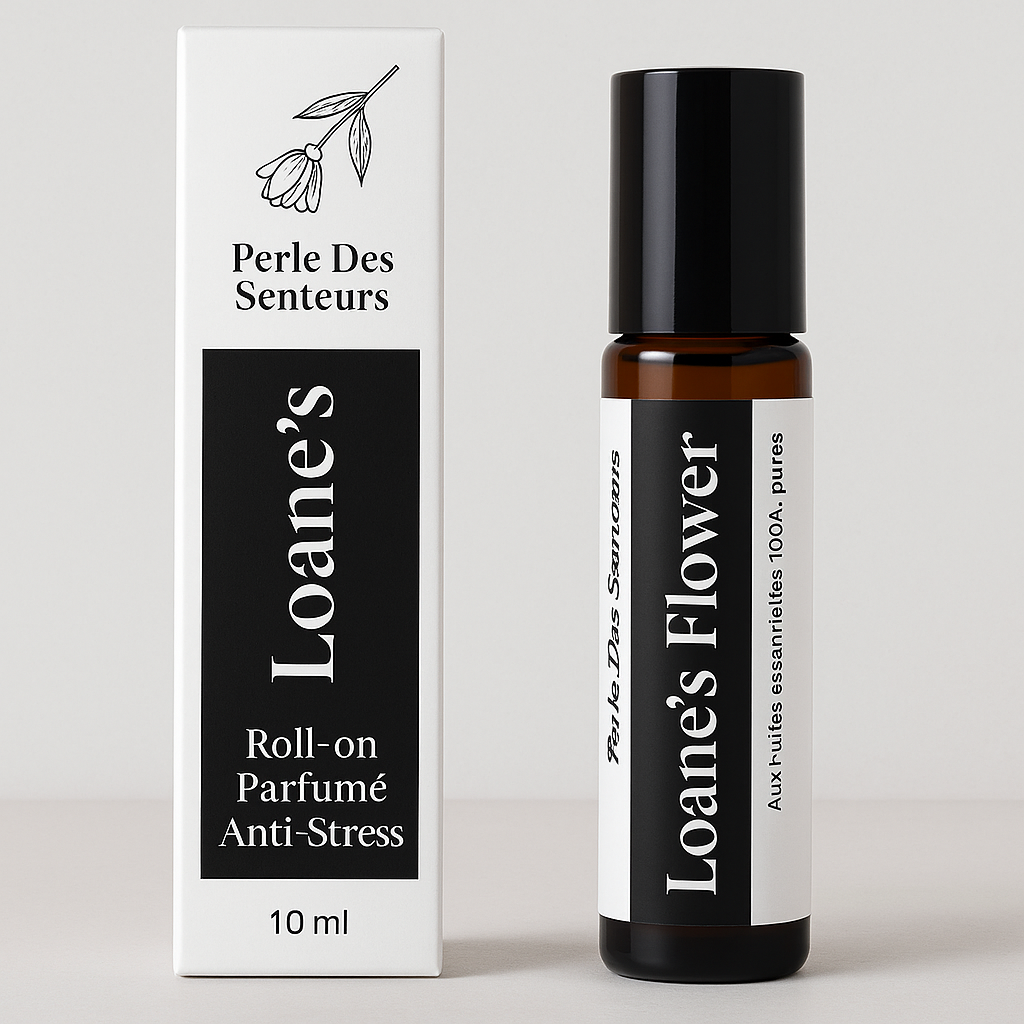Introduction
Welcome to our complete guide to fragrances suitable for different skin types. In this article, we'll explore the importance of choosing the right fragrance based on skin type to maximize fragrance staying power and avoid unwanted reactions.
Purpose of the article
The goal of this article is to help our readers understand how their skin type can influence the scent experience and how to choose fragrances that work best for them. We'll provide practical tips and fragrance recommendations tailored to each skin type, so our readers can confidently choose fragrances that suit their lifestyle and personal preferences.
Importance of choosing perfume according to skin type

Choosing the right fragrance is essential to ensure a pleasant and long-lasting olfactory experience. Indeed, each skin type interacts differently with the aromatic components of perfumes, which can affect the way the perfume develops, how it lasts on the skin and even its final smell.
Fragrances that are poorly suited to your skin type can not only lose their intensity more quickly, but they can also cause unwanted skin reactions such as irritation, itching or redness. This is why it is crucial to understand your skin type and choose fragrances that suit it.
Throughout this article, we will look at different skin types and the scent characteristics that are best suited to them, to help our readers make informed choices when it comes to selecting their next fragrance. Whether you have normal, dry, oily, combination or sensitive skin, we have tips and recommendations that will help you find the perfect perfume to enhance your skin and your personality.
Skin Types and Their Interaction with Fragrances

Understanding your skin type is key to choosing the perfect perfume. Here's a detailed exploration of different skin types and how they interact with fragrance:
1. Normal skin

Normal skin is balanced, neither too oily nor too dry. It tends to retain fragrances well and diffuse them evenly. Perfumes generally last well on this skin type, providing moderate projection and optimal hold throughout the day.
2. Dry skin

Dry skin tends to absorb fragrances quickly, which can lead to poor fragrance retention. To compensate for this, it is recommended to opt for richer, more concentrated fragrances, such as extract fragrances or essential oil-based fragrances. Applying a moisturizer before spraying the perfume can also help prolong its wear.
3. Oily skin

Oily skin tends to produce more oil, which can alter the way fragrances develop on the skin. Fragrances often have a more intense projection on this skin type, but they also tend to disappear more quickly due to excess oil. Opt for light, fresh scents that won't become too overpowering throughout the day.
4. Combination skin

Combination skin has both dry areas and oily areas. It is important to consider the needs of each area when choosing a scent. Light, balanced fragrances are generally best suited to this skin type, providing extended wear without accentuating excess oil on oily areas.
5. Sensitive skin

Sensitive skin may react negatively to certain components of fragrances, such as allergens or irritants. It is advisable to opt for hypoallergenic and mild perfumes, free of potentially irritating substances. Always perform a skin test first on a small area of skin to check for any allergic reactions before applying perfume to the entire body.
By understanding your skin type and how it interacts with fragrances, you will be able to choose fragrances that blend harmoniously with your skin, providing a unique and long-lasting scent experience.
Olfactory families and their interaction with skin types
Each fragrance belongs to a distinct olfactory family, each characterized by its own notes and accords. Here is an exploration of the main olfactory families and their interaction with skin types:
1. Olfactory families
The main olfactory families include floral, woody, oriental, citrus and chypre. Each family offers a unique range of notes, from delicate florals to rich woods and exotic spices.
2. Interaction with skin types
Each scent family can behave differently on each skin type due to its chemical composition and its reaction with the skin's natural oils. For example, floral scents can be amplified on dry skin, while woody notes can be softened on oily skin.
3. Tips for choosing suitable perfumes
To choose perfumes with notes suitable for each skin type, it is important to take into account the characteristics of each olfactory family:
- Dry skin: Opt for perfumes with rich, warm notes, such as jasmine, vanilla or sandalwood, which can help hydrate the skin and make the perfume last longer.
- Oily skin: Favor light, fresh scents, such as citrus, green notes or marine accords, which can help balance excess oil and provide a feeling of freshness throughout of the day.
- Combination skin: Choose balanced fragrances with a combination of floral and woody notes, such as patchouli, white musk or neroli, which can adapt to the needs of each area of the skin.
- Sensitive skin: Opt for soft, delicate fragrances, free of allergens and irritants, such as rose, lily of the valley or lavender, which can soothe and protect sensitive skin while providing a pleasant pleasant olfactory.
By choosing fragrances with notes suited to your skin type, you can improve fragrance staying power and projection while maintaining the health and balance of your skin.
Fragrance Recommendations for Every Skin Type
Discovering scents that match your skin type can transform your scent experience and improve the way your scent interacts with your body. Here are specific recommendations for each skin type:
1. Normal skin
For normal skin, you have the freedom to explore a wide range of fragrances without worrying too much about their impact. Opt for versatile perfumes that offer a beautiful harmony of notes, like the unisex perfumes Crystal Bacarrat or Tonka Bean .
2. Dry skin
Dry skin tends to absorb fragrances more quickly, so opt for rich, creamy scents that can hydrate and nourish the skin. Popular choices include the sensual Wood & Coco , the intoxicating Flower Bouquet from Collection Privée Paris.
3. Oily skin
Oily skin can benefit from light, refreshing scents that don't become too overwhelming. Opt for citrus scents like Sillage Frais , green floral accords like Nefertiti .
For combination skin, look for balanced fragrances that offer a combination of floral and woody notes. Try scents like Vénitienne , which can adapt to your skin's changing needs throughout the day.
5. Sensitive skin
Sensitive skin requires gentle, delicate fragrances that do not cause irritation. Opt for scents such asAngela , which is formulated to be gentle and soothing for sensitive skin.
By choosing fragrances suited to your skin type, you can not only enjoy a pleasant olfactory experience, but also take care of your skin and preserve its natural balance.
Application Instructions and Storage Tips
Correct application of perfume and proper storage are essential to ensure an optimal scent experience. Here are some tips suitable for different skin types:
Application of perfume according to skin type
1. For dry skin: Apply perfume to areas where the skin is warmer and blood vessels are closer to the surface, such as the wrists, neck and behind the ears. The heat will help activate the notes of the perfume and diffuse it subtly.
2. For oily skin: Avoid applying perfume directly to the skin, as this can increase sebum production. Instead, opt for a light spray on clothes or hair, keeping an appropriate distance to avoid staining.
3. For combination skin: Choose an application method that is suitable for both oily and dry areas of your skin. You can apply a small amount to wrists and elbows, as well as pulse points for better diffusion.
4. For sensitive skin: Test the perfume on a small area of your skin first to see if it causes an allergic reaction. If no problems are noted, apply the perfume sparingly to the usual areas, avoiding sensitive and irritated areas.
Storage Tips
- Keep your perfumes away from direct sunlight and excessive heat, as this can alter the composition of the perfume and affect its fragrance.
- Store your perfume bottles in a cool, dark, dry place, such as a drawer or cabinet, to preserve their freshness and quality.
- Avoid storing your perfumes in the bathroom, where heat and humidity can accelerate the process of perfume degradation.
- Be sure to close perfume bottles tightly after each use to prevent evaporation and contamination.
By following these application and storage instructions, you can extend the life of your perfumes and preserve their quality and intensity.
Patch testing and precautions for use
Before applying a new perfume to your skin, it is essential to do a patch test to check for allergic reactions or skin irritations. Here's how to do it:
Patch testing
1. Choose a small area of skin, such as the inside of the wrist or behind the ear, and clean it thoroughly.
2. Apply a small amount of perfume to the chosen area and leave it on for 24 hours.
3. Monitor carefully for any skin reactions, such as redness, itching, stinging, or swelling.
4. If no reaction is observed after 24 hours, the perfume can be considered safe to use. However, if signs of irritation appear, discontinue use of the perfume immediately and consult a doctor if necessary.
Precautions for use
- If you have skin sensitivity or pre-existing dermatological conditions, consult a dermatologist before using a new perfume.
- Avoid applying perfume to irritated or damaged areas of the skin, such as cuts, abrasions or burns.
- If you have sensitive skin, opt for mild, hypoallergenic fragrances, and avoid those containing potentially irritating ingredients.
- When applying perfume to the neck, keep a sufficient distance to avoid direct contact with sensitive mucous membranes.
By following these precautions for use, you can fully enjoy your perfume while protecting the health of your skin.
Conclusion
In this article, we explored the importance of choosing fragrances suited to your skin type for the optimal scent experience. We discovered how each skin type interacts with fragrances and how this can influence fragrance staying power and projection. By understanding the characteristics of your skin and choosing fragrances with appropriate notes, you can ensure that your scent stays fresh and pleasant all day long.
Choosing the right perfume for your skin type is essential for:
- Maximize fragrance staying power.
- Avoid adverse skin reactions.
- Improve your olfactory experience.
We encourage you to explore our range of fragrances online and find the one that best suits your skin type. Whether you have normal, dry, oily, combination or sensitive skin, we have options for you. Remember to do a patch test before using a new perfume and take extra precautions if you have sensitive skin or pre-existing dermatological conditions.







